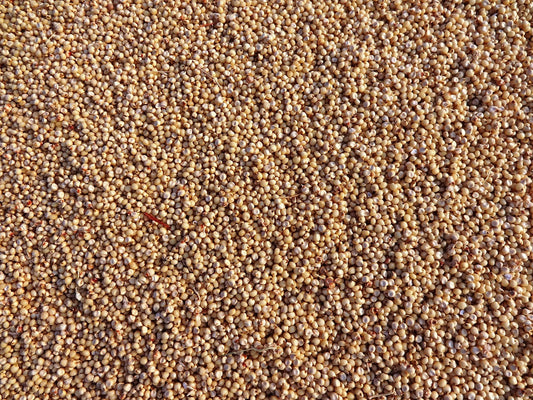If you have a bloated belly after meals, don't wait to change your diet. While some foods cause gas and bloating and make digestion more difficult, others reduce the risk of flatulence and bloating. Here are the foods to choose and avoid to promote intestinal comfort after each meal.
Why do some foods ferment in the intestine?
Some foods are rich in fermentable sugars: these are the famous FODMAPs that more and more people with sensitive intestines are fighting against because they cause bloating, gas and intestinal discomfort. These foods are generally rich in poorly digestible fibers. They contain lactose or gluten, promote fermentation and gas production, or are irritating to the colon. People suffering from irritable bowel syndrome generally have very little tolerance for FODMAPs.
To understand the process a little better, the sugars in these foods are called "fermentable" because they are fermented by yeast when digested. Unfortunately, they are quite common in today's food: they are found in starchy foods (bread, breakfast cereals...), but also in many fruits and vegetables.
If you suffer from recurrent gas and bloating, you may need to review your diet.

What to eat in case of bloating or intestinal gas?
- Vegetables: soft and "young" vegetables have more digestible fibers for sensitive intestines, such as young lettuce or spinach shoots. The skin of vegetables and seeds should be removed if possible (tomatoes, cucumbers, zucchini...) and gentle cooking with little fat is best. Green and leafy vegetables are preferred;
- Fruits: choose ripe fruits (banana, pear...); raw at the beginning of the meal and cooked at the end. Examples: grapefruit as a starter; poached pear for dessert. Opt for fresh fruit (raw) outside of meals if you digest it better (apple, clementine...);
- Meats and equivalents: choose the least fatty and tender pieces of meat (chicken, cooked ham...). Do not cook them, like fish and eggs, with too much fat;
- Dairy products: fermented milk such as yogurt, kefir, etc. contain "good bacteria" that are useful for digestion and the assimilation of nutrients by the body. These bacteria also fight against the development of bacteria responsible for intestinal transit problems. Cooked cheeses (comté, emmental...), which are practically lactose-free, are better digested;
- Starchy foods: bread, pasta, rice, potatoes. Do not overdo these foods and alternate gluten foods such as bread and pasta with with gluten free options such as buckwheat and quinoa.
Which bread should I eat to avoid bloating and a swollen stomach after a meal?
Rye bread, oat bran bread (without whole wheat), barley or buckwheat bread are recommended. On the other hand, avoid white bread that is too fresh and hot because the starch promotes bloating. Beware, this is sometimes also the case with wholemeal bread, which is very rich in fibre. We prefer to avoid whole grains, because digestion can become difficult for the body.
Which foods should I avoid that cause gas and bloating?
Some foods, because of their composition or the way they are prepared, promote gas or slow down gastric emptying.
- Foods that are too fatty (fried foods, red meat, meat in sauce, cold cuts, etc.) slow down digestion and promote gas. Prefer gentle and healthy cooking (steam, papillote...);
- Milk: because of the lactose, a sugar that is difficult to digest when the body does not produce enough lactase, an enzyme that is essential for its digestion. There are "lactose-reduced" milks;
- Sugar-free" candies and chewing gums contain polyols, synthetic sugars (sorbitol, mannitol...) that ferment. In addition, chewing gum causes air to be swallowed;
- Some vegetables, such as cabbage, cauliflower, artichoke, asparagus, ferment in the intestine. They should not be abused in case of sensitivity. To take advantage of their benefits, they can be cooked in two batches by changing the cooking water;
- Legumes (chickpeas, dried beans...) and whole grains such as rice and bread have insoluble fibres that are beneficial for digestion, but consumed in excess, they can be badly tolerated. They must be integrated little by little. Note that lentils are the best tolerated;
As for drinks, it is advisable to choose flat drinks instead of carbonated drinks, sodas and carbonated water.
Herbal teas, plants, spices... how to avoid flatulence in general?
Plants and herbs have fascinating properties. Some of them particularly help to fight against the feeling of bloating and gas! The easiest way is to consume them in the form of digestive teas: thyme, lemon balm, mint, rosemary, green anise, star anise, fennel... The advantage is that you have a choice!
Another tip that can be useful: cook food with condiments (basil, thyme, rosemary, cumin, cinnamon...). It is a reflex to take that can clearly improve digestion, stimulate the secretion of digestive juices, and in particular have a carminative effect (promote the expulsion of intestinal gases, while reducing their production). Moreover, cooking with condiments seasons your dishes and avoids you the excess of salt.
In general, all plants such as mint, star anise, Roman chamomile, cardamom, cumin, star anise, fennel, ginger and cinnamon are recommended to improve digestion.




